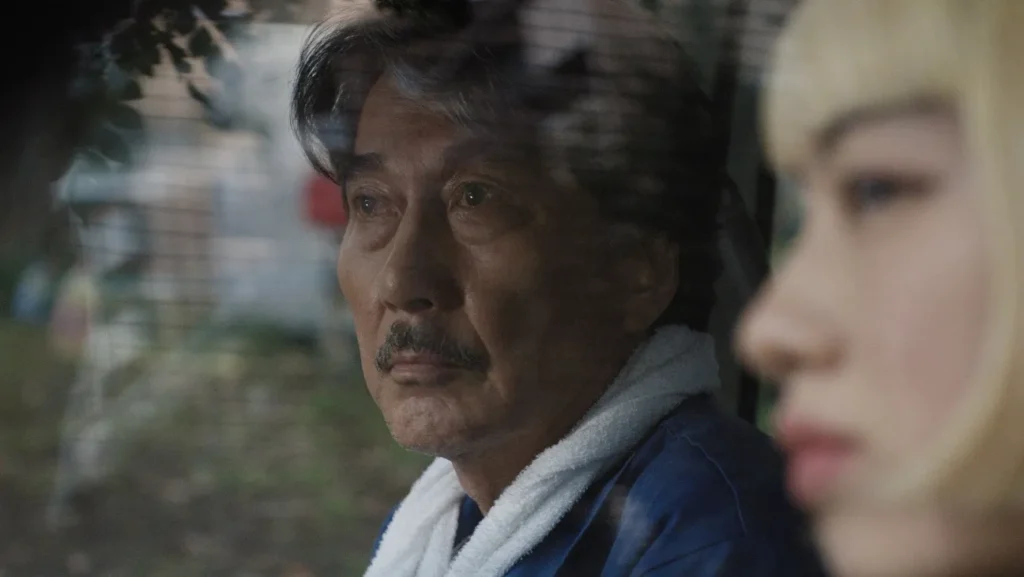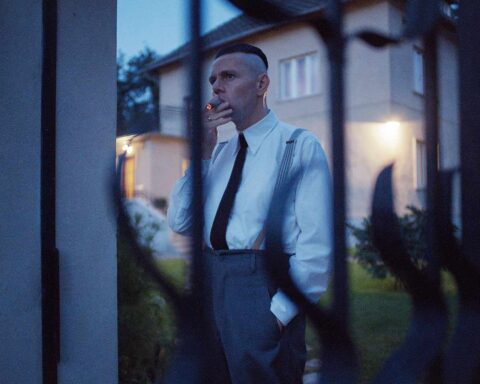In Wim Wenders‘ meditative, Perfect Days (2023), viewers are transported to a world where the ordinary transforms into the extraordinary with smooth and continuous strokes of cinematic poetry. The simplicity of daily routines takes on a profound significance, serving as a canvas for existential contemplation. Guided by the protagonist, Hirayama (Kôji Yakusho), the film unfolds with mesmerizing cadence, offering a unique exploration of the human condition. Wenders delicately captures the essence of existence through the lens of existential contemplation, creating a quiet rebellion against the noisy chaos of modern life in the metropolitan. The narrative whispers through the viewer’s mind, unveiling the beauty and blessedness in simple acts like waking up and going to work, turning them into moments of celebration. It challenges the audience to reconsider their own lives, prompting reflection on whether the pursuit of comfort and luxury is a means to an end or an end in itself. By adopting this philosophical lens, the film reveals the richness within the ordinary, inviting viewers to explore life’s subtleties and find meaning in simplicity.
In the midst of Tokyo’s hustle, Hirayama, a modest toilet cleaner, embraces his role as a guardian of cleanliness. His life unfolds like a carefully orchestrated regime, a daily rigmarole etched from dawn to dusk. His journey begins as he traverses the urban landscape in the cocoon of his van, listening to songs on cassette tapes. Amid the structured existence, his days are a canvas painted with strokes of dedication to his job. Hirayama nurtures his affection for trees through gardening and photography with his film analog camera. His daily ritual includes having a sandwich under the park trees while capturing their beauty with his camera. Following this, he visits public baths and has dinner at a humble eatery. His literary interests lead him to purchase books from one-dollar shops. On his free day, Hirayama tends to his laundry, gets his film developed, cleans his flat, and enjoys dinner at a small restaurant. In contrast, his workmate Takashi on the second shift is often tardy, loud, and less disciplined. The serene routine is disrupted when Niko, Hirayama’s niece, unexpectedly appears one day. Her arrival introduces an unexpected chord, altering the familiar rhythm of Hirayama’s routine and unveiling some of his untouched emotions.

In the sanctuary he has created for himself, Hirayama discovers a happiness detached from the transient pleasures of consumerism or fame. This internal resonance is not dictated by external expectations. Every day, as he steps into the world from his modest abode, he greets the sky—a custom transcending mere communication. Hirayama, a man of few words, prioritizes precision over verbosity. His deliberate silence becomes a canvas for acute observations. A connoisseur of minutiae, he finds joy in the nuances of rustling leaves and the shy crowns of canopies. The question arises: is his conservative demeanor a natural extension or a constructed facade? If Niko hadn’t appeared an hour into the film, the dramatic arc of Hirayama’s character would have been absent. The mystery surrounding his past loss lingers in ambiguity, propelling him toward a life of seclusion. Thus, the film unfolds as a character study, delving into the layers of a man whose silence speaks volumes about the untold chapters of his existence.
Perfect Days critically dissects Tokyo’s class structure, exemplified in a tender scene where Hirayama rescues a stranded child in a toilet. The mother, upon finding her son, scolds him, wiping his hands with disdain, leaving Hirayama unthanked. However, the child waves at him and that brings a smile to Hirayama’s face. As a toilet cleaner, people from the upper echelons treat him with disdain. When Hirayama’s sister, Keiko, arrives to pick up Niko, her inquiry about his profession drips with judgment. Even Takashi questions Hirayama about his commitment to his low-profile job. Thus, Hirayama’s daily jumpsuit becomes a shield against such discriminating observations. His monochrome dream sequences offer refuge, an escape from a judgmental world and finds solace in the simple, overlooked moments. His few friends are from the eateries he visits after the toil of the day. A brief exchange and playful interlude with a cancer-stricken stranger (Tomokazu Miura) reveal the tender soul beneath Hirayama’s disciplined exterior. His passion for literature, exploring the works of William Faulkner and Patricia Highsmith, suggests a rich literary background, adding depth to his enigmatic character.

Franz Lustig‘s cinematography skillfully contrasts the confined space of Hirayama’s room with the vibrant sunlight of the day and the glittering nightlife of Tokyo. His framing consistently reveals the emotional core of the protagonist. Toni Froschhammer‘s editing establishes a harmonious rhythm, infusing perfection and beauty into the repetition of everyday moments. However, a slight sense of drag could have been alleviated with judicious trimming of the duration. Even the black-and-white dream sequences, crafted by Wender’s wife Donata, begin to feel repetitive after a certain point in the narrative. Frank Kruse‘s minimalist sound design relies predominantly on diegetic sounds, occasionally weaving in tracks by Lou Reed, Patti Smith, Otis Redding, and the Kinks.
In his portrayal of Hirayama, Koji Yakusho masterfully breathes life into a character that is both uncanny and truthful. Navigating the daily grind with subtle grace, Yakusho’s depiction of this seemingly nondescript individual showcases his acting prowess. He unravels the layers of the character with meticulous precision, emphasizing every gesture, expression, and nuance with a diligence that goes beyond mere acting. What sets the performance apart is the diligence with which he approaches his daily chores on screen. The artless unfolding of Hirayama’s persona is subtle yet profound, showcasing Yakusho’s ability to convey depth and emotion with remarkable subtlety. There is absolutely no doubt as to why Koji Yakusho received the Best Actor award at the Cannes Film Festival in 2023.
Perfect Days gracefully imparts the insight that life’s trajectory is simple—it merely exists, no more and no less. The film doesn’t rely on a series of dramatic moments to propel the narrative but instead invites viewers to grasp the present. It emphasizes that life’s essence lies in its unembellished reality. To fully appreciate the delicate balance between the mundane and the profound, viewers need a particular kind of commitment and patience.
Perfect Days has been nominated for the Best International Feature Film at the 96th Academy Awards 2024.






